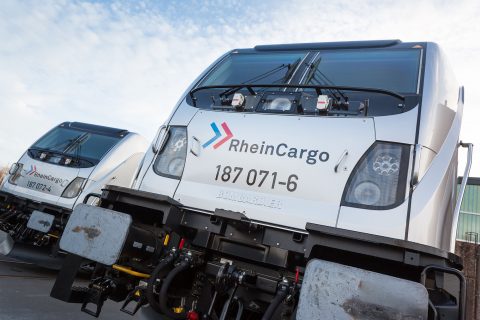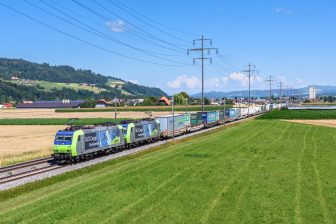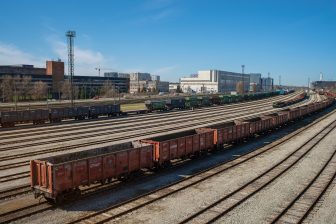
RheinCargo rail volumes down sharply in 2016
German rail freight operator RheinCargo has acknowledged that a difficult 2016 had resulted in its rail freight volumes falling from the previous year, mirroring the situation experienced by many freight operators in the country last year.
RheinCargo, the country’s largest privately-owned rail freight company, said last year’s national decline was against the backdrop of worsening conditions for the railways, and sharp competition from trucks, which ‘continue to benefit’ from low diesel prices.
Decline
Although it moved 22.4 million tonnes of freight by rail, this was down by 4.2 per cent on the previous year’s 23.4 million. Overall, the company increased cargo handling across its seven Rhine ports at Neuss, Düsseldorf and Cologne, up four per cent, up by 4.4 per cent to 50.4 million tonnes, but this was largely down to shipping movements.
Wolfgang Birlin, Managing Director of RheinCargo, said: “2016 was not an easy year for the railway. In addition to burdens resulting from increasing regulation, increasing skill levels have also had a negative impact on the entire railway sector. RheinCargo is responding to this trend by intensifying the training of its own junior staff.
“We will continue to offer our customers excellent logistics solutions with ship and rail as an environmentally friendly alternative to road transport,” he added.
Connections
Founded in 2012 as a joint venture between Häfen und Güterverkehr Köln AG and Neuss-Düsseldorfer Häfen, RheinCargo has 90 fully-owned locomotives and 1,000 freight wagons, and offers connections right across the European network.
Operations were recently boosted with the acquisition of 10 new ‘E-locomotives’, a fleet of new Bombardier Traxx AC3 models which will form the basis of RheinCargo’s drive towards a greener future. Capable of travelling up to 140 km per hour on Germany’s long-distance networks, they are transporting products such as mineral oils and building containers.
Destatis
According to the German Federal Statistical Office (Destatis) freight volumes overall were up 1.1 per cent to 4.6 billion tonnes, the fourth consecutive annual rise. But while road, sea, air and pipelines gained significantly, railways and inland waterways’ share of the market fell.
Rail freight volumes fell by 1.6 per cent to around 361.3 million tonnes, and the German Pro-Rail Alliance has calculated that this equates to a market share of 17.6 per cent in 2016, down from 18 per cent in 2015. By comparison, the market shares last year in Switzerland and Austria were 42 and 30 per cent respectively.





